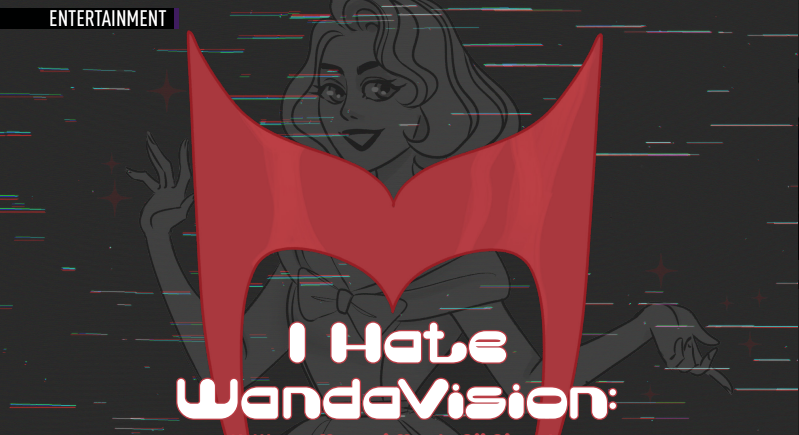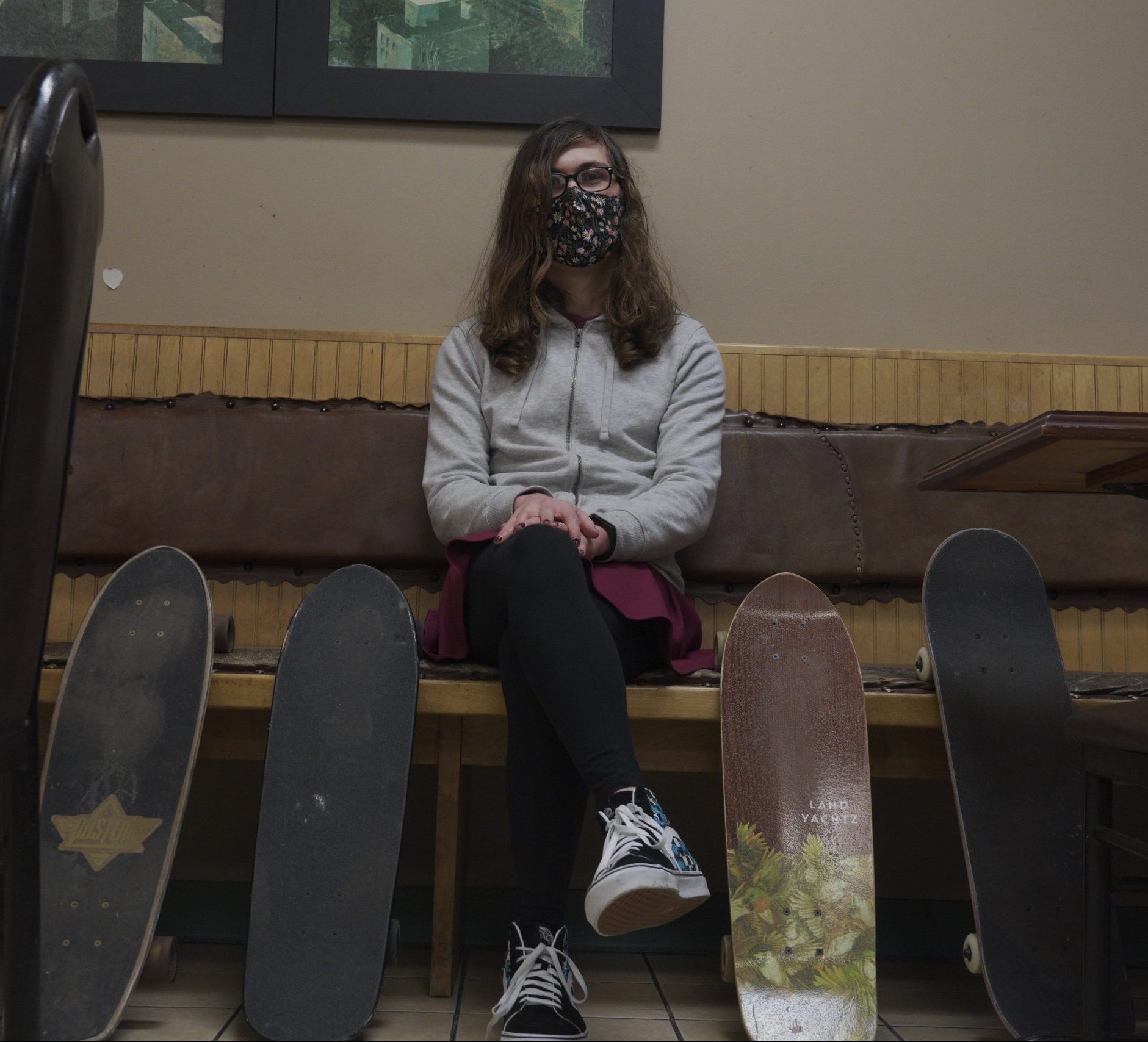
Wanda Maximoff has had her life torn apart repeatedly by the writers of the MCU. First, her parents died (apparently in front of her eyes as WandaVision retconned) to a bomb made by Stark Industries, then her brother was brutally gunned down by a beast of Stark’s creation, and then she had to kill the one person left in the world who she loved and trusted, only to find her sacrifice had achieved nothing. Needless to say, Wanda is a bit traumatized by the whole Marvel Cinematic Universe and has never been given the chance to process any of that trauma.
With this in mind, it’s understandable when Wanda encompasses the town where she and Vision planned to settle down in a massive illusion and plays out the idyllic suburban life of 50s television with a resurrected Vision and the town’s residents. And when the government finds out something fishy is going on, they send the Fishy Happenings Investigation Department (known as SWORD in the MCU) and their best people to investigate. Early on, one of SWORD’s nerds discovers that while they can’t safely enter the town that Wanda’s trauma response has taken captive, they can see into it via TV broadcasts that Wanda is beaming out. This on its own was an interesting premise that the show could have taken in so many unique directions. But they chose to squander that premise.
However, before we go into what I hated, it’s only fair to bring up a few things I liked about the show just so I won’t seem like the vitriolic fun-hater that I truly am. As I already mentioned, the premise was very interesting and it had the potential to be a very in-depth exploration of Wanda’s character, which I was very excited for early on. Additionally, even as the show progressed and I grew more and more disappointed with the plot, it consistently managed to capture the style of whatever era of TV it was mimicking that episode while still remaining interesting for modern audiences, the 50s and 2000s episodes being particular standouts.
The issues begin with the commercial breaks. From the beginning, the show tries to imply to its audience (very heavily-handedly) that HYDRA is involved in “The Hex” that Wanda created. From the start, the show begins to sabotage what could have been a relatively self-contained emotional exploration of a character who’s been overlooked in the MCU movies and try to tie everything into some grand arc.
Later on in the show, the illusion version of Vision begins to become suspicious of the world he’s trapped in. Things are unnatural due to the sitcom format and he has a brain so he begins to notice this and tries to break free of the illusion. He still loves Wanda, but he dislikes how she’s trapped him and everyone else in a fantasy world. This culminates in a failed escape attempt, where he breaches the outer wall of the illusion, revealing himself to SWORD and causing Wanda to expand the barrier to bring him back in, covering the SWORD camp in the process.
Unfortunately, in its final illogical twist, the show removes this little bit of agency it gave to Vision by just saying he was manipulated to think that the sitcom was illogical, as though it wasn’t actually, objectively illogical. In what is perhaps the most stupid plot twist I’ve seen on television, Agatha Harkness, a resident of the town, reveals in song that she is a witch and was manipulating Wanda’s illusion to sow discord and steal Wanda’s magic. The fact that this twist was never set up—evidenced by the need to reveal information that was never shown to the audience for it to make sense at all—doesn’t matter at all to the show and it keeps going along its merry way as if it didn’t just pull one of the laziest writing tricks in the book.
In addition to the annoying plot, WandaVision also falls victim to the classic MCU trap of name dropping. Every single character in every single MCU franchise—including WandaVision—has to be some named character from the comics. There must always be some easter egg that affects nothing for the megafans to geek out about. Every character in WandaVision is someone who is relevant, was relevant, or will be relevant at some point. From the FBI agent, to the astrophysicist, to the director of SWORD, no one is no one. And that’s not even mentioning Monica Rambeau. There are no regular people in the MCU; no one exists who lives what constitutes a normal life for the universe, everyone with a line has to be someone.
Instead of allowing Wanda and Vision’s characters to be complex, the show never develops her motivations or emotions beyond the very basic tragic backstory and chooses instead to focus on moving Disney’s grand plan for the MCU forward.
WandaVision is not an exploration of Wanda’s character, it is another vehicle to move the grand, all-encompassing plot forward and introduce more comic book characters. WandaVision does not care about Wanda or Vision just like no recent MCU movie really cares about its characters. WandaVision only cares about finding the least unnatural way to bring in Superhero McSuperface™ and The Plotpoint Crisis™ from the comics so everyone can nerd out and theorize what this means and stir up Twitter discourse while The Mouse rakes in billions.
After all is said and done, WandaVision achieved nothing for the character of Wanda. She didn’t even really apologize or atone for her actions and the show never cast her as anything besides the simple good hero despite the fact that she imprisoned and tortured an entire town of people for weeks. The show was simply a box to check off for the MCU writing committee on their way to the next Big Plotpoint. It brought back Vision, revealed that Wanda was suuuuuper powerful, and introduced Timmy and Tommy to the universe so they can show up in the next Avengers movie.

Comments